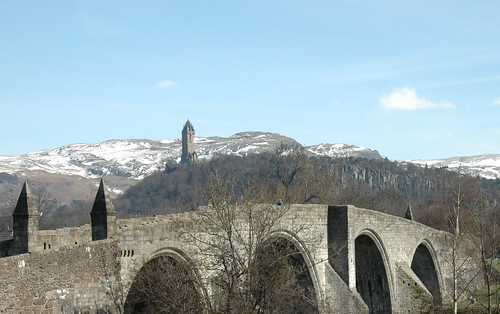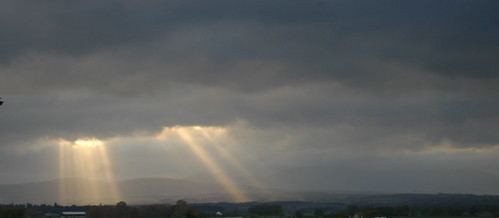I recently stumbled over Arthur Frank’s “The Renewal of Generosity” (ISBN 978-0226260174). Many years ago I read and was hugely impressed by his “The Wounded Storyteller”. It’s a great small book which is an important contribution to the struggle to create a better way of practising medicine in the 21st century. Doctors and patients are increasingly demoralised by the reduction of health care to technical procedures and the delivery of products (what Dan Siegel describes as “diagnose and drug” in his analysis of contemporary psychiatry). The everyday, subjective experiences of both patients and doctors are dismissed as irrelevant in the pursuit of measurement, targets and throughputs. Isn’t it some kind of indictment of our current health care that he can say this on page one –
My conviction is that at the start of the 21st century the foremost task of responding to illness and disability is not devising new treatments, though I’m grateful this work will proceed. Our challenge is to increase the generosity with which we offer the medical skill that has been attained.
That’s the word which really struck me – generosity. I think a lot about compassion and its central place in good health care, but I’ve not really considered the work generosity. It’s such a good word. Somehow it not only encompasses compassion but it contains within it a sense of enlarging life – my own life, and the lives of others to whom I am generous. It’s a welcoming, loving, life growing word. It’s a good word to bear in mind when considering “how to live”, how to find happiness and how to create well-being.
His key theme in this book is to weave together the teachings of ancient Stoicism (a much misrepresented classical philosophy I believe), with the case for dialogue. He primarily draws on the writings of the Stoics, of Levinas and Bakhtin.
The practice of medicine is a relationship between two people. What are we to call these two people? As a doctor, I’m fairly comfortable with the term, “patient”, but it bothers me that it seems to imply something passive, expecting the ill person to just be treated, and that contains the seeds of objectification – treating people not as people, seeing them as instances of disease, instead of persons who suffer. I hate the word “client”. It’s laden with commercialism and contractualism for me. However, Frank pulls a different set of words out of the bag and they hit me between the eyes –
The renewal of generosity will be hastened if participants in medical relationships think of themselves not (at least not only) as patients and professionals, much less as consumers and providers, but as guests and hosts.
Guests and hosts! He elaborates and explains, but I won’t share that here. Just think about this idea for a moment. I’ve never encountered it anywhere else. Wonderful.
I love so much of what he has to say about the importance of dialogue –
Dialogue suggests that the world is co-experienced by two of more people. Each one’s perspective is necessarily partial, and each needs to gain a more adequate sense of the world by sharing perspectives.
I wrote about that from a neuroscience perspective recently here.
The enlarging of perspective, or, in the other words, the attempt to see a more full picture demands dialogue. It prevents us from dismissing others through judgement and classification.
…no final, finalising discourse that defines anything once and forever. No last word can be said about this you, whose horizons of possibility remain open.
“whose horizons of possibility remain open”……how often do we forget that? How often do we squash hope with the illusion of certainty? How often do we practice as if we know exactly what a treatment will bring about for the person undergoing it? Having open horizons of possibility is a characteristic of healthy living.
We have other good reasons for dialogue apart from sharing our perspectives to gain a fuller picture. We use dialogue to value the other.
…the moral demand of dialogue is that each grant equal authority to the other’s voice……it’s being willing to allow their voice to count as much as yours
[doctors] are taught monological medicine: the doctor is the one cognitive subject in the consulting room, and the patient is an object for that cognition.
Identification with others requires giving up monologue.
The other element which we have to consider when we focus on dialogue is the other part of the doctor-patient (or host-guest) relationship – the carer. I think our system of medicine dismisses this almost entirely. The focus on “randomised controlled trials” is a focus on the statistics of groups. Once a drug or treatment is “proven” it seems to be irrelevant who delivers it, or how. Yet that’s not our experience when we are ill. Who the doctors and nurses are is important to us. How they talk, how they listen, how they treat and care for us. The idea that its the treatment which is important and the not the person administering it seems inhuman to me.
We can keep the question before us: what do they think about how I am imagining them? and we can believe that what they think matters.
We should honour patients’ stories, not dismiss them as “subjective” or “anecdotes”. They matter.
Finally,
…the person who we see ourselves revealed to be is seen most fully in others’ responses to us
Isn’t that so true? What have you seen of yourself in others responses to you today?
Read Full Post »













